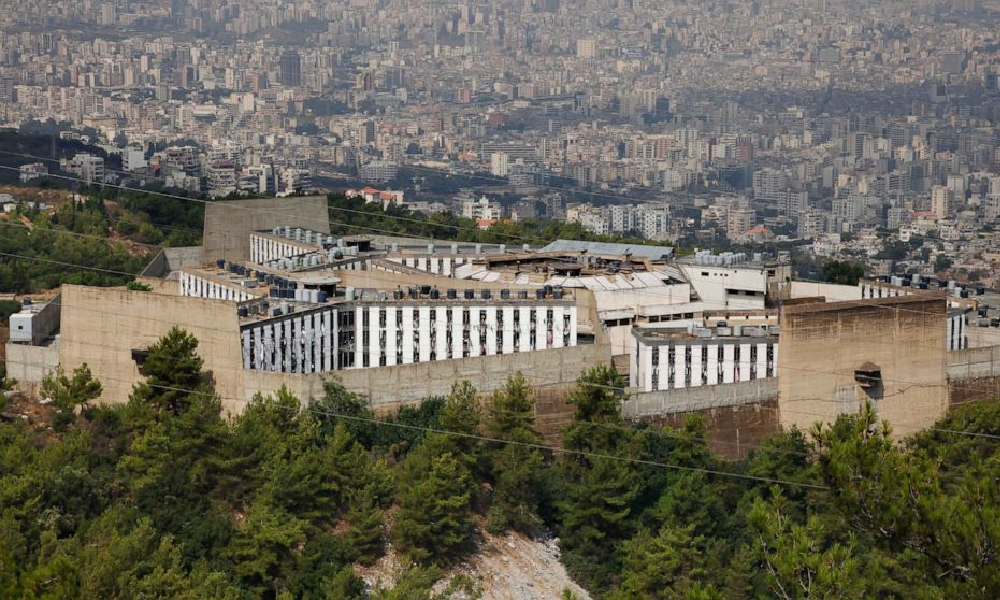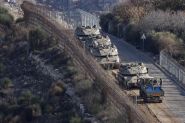
A high-level Syrian delegation arrived in Beirut on Tuesday to address a long-neglected issue in strained bilateral relations: the case of Syrian detainees in Lebanese prisons. Officially, the meeting aimed to finalize a judicial agreement to organize the transfer of Syrian nationals incarcerated in Lebanon back to Syria within a legal framework that includes humanitarian safeguards. Unofficially, it tested how far Beirut and Damascus could cooperate in an area where justice, security and political memory intersect.
Discussions, described by both parties as “positive,” focused on establishing joint committees to review prisoner files and determine which detainees might be eligible for transfer. These committees will also work to locate Lebanese citizens missing in Syria for years and resolve disputes related to undefined border areas.
According to an official familiar with the matter, interviewed by This is Beirut, an initial draft of the agreement has already been prepared. It would create a bilateral coordination mechanism between the Ministries of Justice and Interior of both countries. The mixed committees, expected to begin functioning in the coming days, will examine each case individually before any transfer decision is made. The goal is to ensure transparency and prevent politically motivated reprisals, while also addressing the fate of missing persons and future judicial cooperation.
“According to the preliminary elements of the agreement, only Syrian detainees not involved in violent crimes, terrorism or cases affecting Lebanon’s national security would be considered,” the official said. “This strict selection serves a dual purpose: avoiding any perception of leniency toward violence while easing pressure on a Lebanese prison system on the verge of collapse.”
In parallel, the delegation also discussed progress on the bilateral judicial agreement concerning crimes and disappearances dating back to the former Syrian regime. According to official sources, the Syrian team pledged full support for the commission monitoring missing persons, committed to providing all available information on security operations conducted in Lebanon under the former regime, and agreed to cooperate in locating and transferring individuals who fled Lebanese justice to Syria. This progress, enabled by preparatory work initiated last month, will be further reinforced through additional meetings designed to strengthen bilateral relations while fully respecting the sovereignty of both states.
Lebanon’s prisons are facing a critical overcrowding crisis. Official figures indicate that over 2,000 Syrian nationals are currently detained, representing approximately 30% of the total prison population. According to a judicial source interviewed by This is Beirut, these detainees include those convicted of serious crimes, those held for lesser offenses and political prisoners, many of whom are still awaiting trial.
This alarming situation has prompted Beirut to accelerate efforts to reach a compromise with Damascus, as security and humanitarian conditions in the prisons grow increasingly volatile. Lebanese Minister of Interior Ahmad al-Hajjar recently warned of a potential total collapse of the penitentiary system if urgent measures are not taken, citing inhumane conditions, record overcrowding and rising tensions among inmates.
Syria, for its part, has pledged full cooperation with Lebanon to resolve the issue “in a spirit of fraternity and sovereignty,” but insists that any transfers follow its own judicial procedures.
Beneath this technical negotiation lies a deeply political challenge. By opening this dialogue, both Damascus and Beirut aim to consolidate the recent thaw following the fall of Bashar al-Assad’s regime in December 2024 and the rise of President Ahmad al-Sharaa. The new Syrian leadership seeks to restore its regional legitimacy, while Beirut hopes to achieve tangible progress on sensitive issues, including border demarcation, refugee returns and the fate of 17,000 Lebanese missing in Syria, according to official figures.
These dossiers now serve as a litmus test for the Syrian government’s willingness to move beyond the past. Their success will depend on careful implementation, as any attempt at political manipulation or exploitation could derail the process and reignite mistrust.




Comments